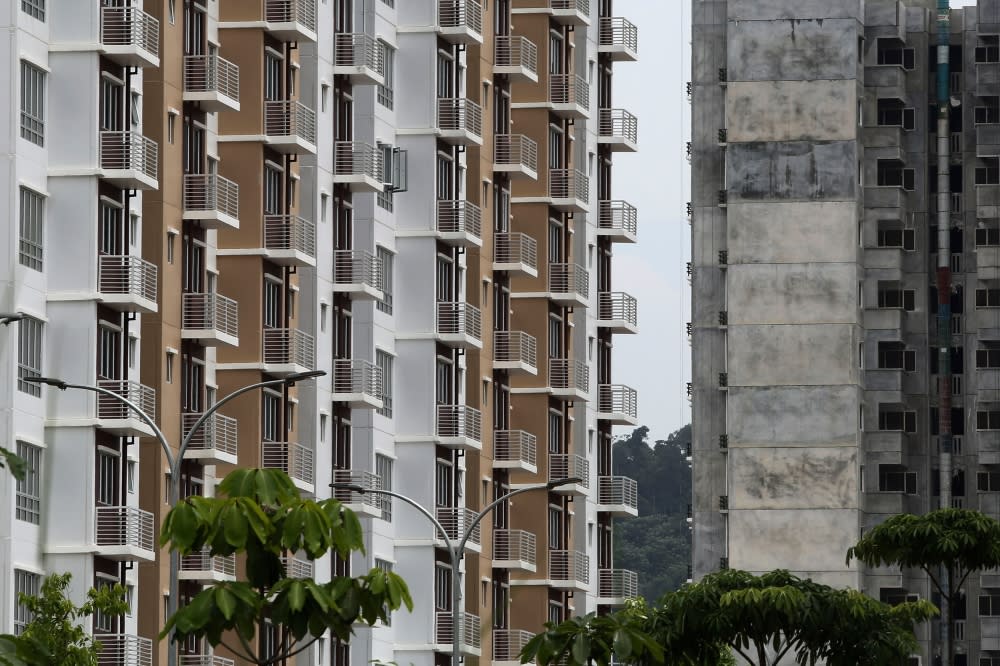Group urges Putrajaya to overhaul affordable housing policy, end M40 cross-subsidy

KUALA LUMPUR, June 3 — The government should build new towns with affordable housing for rental only by those in the lower income group, and change the current “unfair” policy of having middle-income (M40) house buyers pay for part of the costs of affordable housing, a business group said today.
The Associated Chinese Chambers of Commerce and Industry of Malaysia (ACCCIM) welcomed Prime Minister Datuk Seri Anwar Ibrahim’s call for a review of the nation’s affordable housing policy as “timely”, but went on to suggest a complete overhaul of the current policy.
While Anwar had questioned why it should only be the government that prepares affordable housing and suggested that property developers bear the same responsibility partially, ACCCIM today instead argued that requiring developers to build affordable housing would actually end up in the cost being passed to middle-income house buyers.
ACCCIM argued that it would be unfair to have middle-income house buyers bear the subsidy — where the housing units they buy would be more expensive to help cover the cost of affordable housing — as it would also result in them not being able to afford housing for themselves.
“Social housing should be the social responsibility of the government and built through the national budget allocations paid by all taxpayers.
“The current cross-subsidy model expecting middle-income house buyers to carry the burden of the subsidy is totally inequitable. The increasing quantum of subsidy have made these middle-income houses to become unaffordable,” it said in a statement today.
ACCCIM said affordable housing or social housing should only be rented out to tenants based on their income levels.
The ACCCIM said that social housing should only be meant as “transit homes”, and that residents must move out to their own homes once their financial circumstances exceed the income level set to qualify or be eligible to stay in these affordable housing.
Stressing that such social housing should not be sold, the ACCCIM claimed that the current practice which allows such highly-subsidised homes to be sold would allegedly enable sellers to “monetise the subsidy for a windfall profit”, and would allegedly create an insatiable appetite for such highly-subsidised houses.
“The principle that one should not profit from charity is totally exploited,” it claimed.
The ACCCIM also said it is incorrect to believe that property developers are the ones bearing the subsidy for affordable housing, arguing that this subsidy is passed down to buyers of middle-income houses, with the additional cost factored into the prices for such middle-income houses.
“The most unfair and inequitable outcome is that the middle-income house buyers are the ones carrying the subsidy in the unnecessary higher middle income houses prices,” it said, adding that the prices for middle-income houses have gone beyond affordable levels and many middle-income Malaysians are unable to own their dream homes.
The ACCCIM proposed that the Malaysian government plan new towns with the primary aim of providing social housing and affordable housing for rent.
“These new townships should be of adequate size to create a sustainable township ecosystem that attracts industries, commerce activities and creates employment opportunities for the residents. Planned with public transportation connectivity and community services, residents of these new towns are also able to seek employment farther afield,” it said.
“ACCCIM fully supports YAB PM’s call to review the affordable housing policy and we trust that the Madani Government will design a socially equitable and principled new affordable housing policy that will deliver affordability that will endure not only to B40 but also M40 households,” it concluded, referring to the low-income and middle-income groups as B40 and M40 respectively.
The ACCCIM cautioned that failure to address delivery of affordable housing and its resulting unaffordability of middle-income housing would result in the hindering of construction for such housing, and would further worsen housing shortages and lead to house prices growing higher.
It also cautioned that shortage in rental housing and exorbitant rentals could also lead to homelessness as seen in many supposedly developed countries and global cities.
On June 1, Anwar said the current policy requiring property developers to build at least 30 per cent of affordable housing as part of their housing projects was not addressing the issue of affordable housing shortage at the speed and scale required, and that he has asked the Local Government Development Ministry to relook the policies and impose new conditions.



